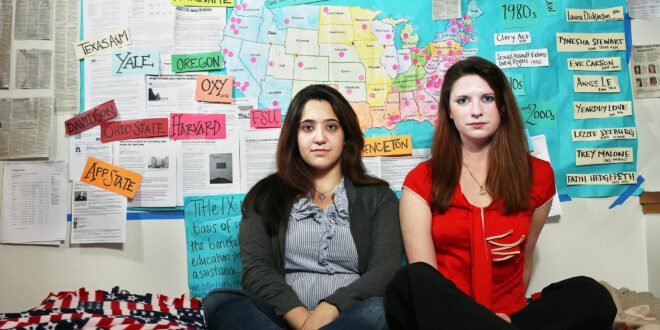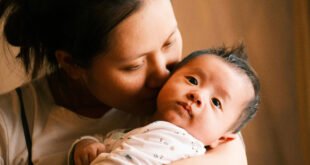The Escalating Crisis of Sexual Violence in Goma, Democratic Republic of Congo
Every week, hundreds of victims and survivors of sexual violence seek care at health centers supported by Médecins Sans Frontières (MSF) in Goma, eastern Democratic Republic of Congo. In 2024 alone, nearly 40,000 women were treated by MSF teams in North Kivu province, marking a record high. This alarming trend has continued into 2025, with the situation worsening dramatically after the M23/Alliance Fleuve Congo (AFC) forces, backed by Rwanda, took control of Goma, the provincial capital, in January.
The takeover of Goma led to an immediate surge in casualties, both military and civilian. Hospitals became overwhelmed, and morgues filled quickly as the Congolese army and its allies retreated. Insecurity, crime, and violence became the new normal for the city’s over one million residents.
MSF teams have recorded consistently high levels of sexual violence cases since the conflict escalated. Between January and April 2025, more than 7,400 victims and survivors of sexual violence received treatment at Ministry of Health facilities supported by MSF in Goma. An additional 2,400 cases were reported in Saké, a district west of the city, during the same period.
Female victims and survivors of sexual violence can be seen gathering from early in the morning at health centers where MSF operates. They need healing, support, and a voice. Nasha, a survivor who visited MSF clinics in May, shared her story of displacement and trauma. Originally from Masisi, she fled clashes between armed groups and the Congolese army between 2021 and 2024. She moved to a displaced persons camp alongside 650,000 others on the edge of Goma. However, in February 2025, the M23/AFC group ordered the dismantling of the camps, forcing residents to leave.
Many displaced people cannot return to their homes due to lack of resources or because their lands have been seized. As a result, they often seek refuge with host families or in low-cost housing in Goma and surrounding suburbs. Nasha described how her family was forced to live in a school courtyard after their camp was destroyed. One night, armed men broke into their home, attacked her, and killed her husband.
Nasha’s experience is not unique. Every day, women travel from neighboring areas like Nyiragongo to Goma in search of safety—often to no avail. Attacks on shelters, whether on small plots of land, rented rooms, or public places, are frequent. Armelle Gbagbo, who runs women’s health activities for MSF, explained that most rapes previously occurred during daily activities such as collecting firewood or trading. Now, many attacks happen at sites where women live, particularly at night when insecurity increases.
Denisa, a minor from Rutshuru, fled with her family to Goma amid the M23/AFC advance. In April, armed men entered her home and raped her while her family was forced to leave. Not all perpetrators are armed men; many assaults are committed by those closest to the victims, including family members or hosts.
Frédéric Germain, MSF’s project coordinator, noted that fear grips the population since the city was taken. He emphasized the significant insecurity and the constant threat posed by armed groups and criminals. The availability of weapons makes it easier for bandits to commit violent acts, while the economy slows down, leading to increased predation.
Sarah, another survivor, recently visited an MSF clinic. Her husband was kidnapped by armed men who stormed their home after the camps were dismantled. She has not heard from him since. Others around her recounted stories of killings, looting, and kidnappings of fathers and brothers.
A recent study by Epicentre, MSF’s epidemiological research center, highlights a sharp increase in violence in Goma. The number of violent incidents in the first six months of 2025 was more than five times higher than in 2024. Dr. Brahima Touré, an epidemiologist working with Epicentre, noted that one in four deaths was due to violence, with many experiencing physical violence and verbal threats.
The study also revealed high levels of sexual violence, likely underestimated due to the reluctance of survivors to speak out. Many women suffer from sexually transmitted diseases (STDs), linked to gang rapes and the practice of trading sex to survive. Close to 20% of MSF patients are unable to seek medical attention within 72 hours of being attacked, missing the critical window for post-exposure prophylaxis medication.
The impact of the U.S. Agency for International Development (USAID) cuts under the Trump administration has further worsened the crisis. A planned order of 100,000 post-rape kits was canceled, leaving only 2,500 emergency kits available in North Kivu. This has had catastrophic consequences for survivors.
Sexual violence is not confined to Goma or its suburbs. Victims and survivors travel long distances to seek treatment in the city. Germain urged other international partners to step up support, emphasizing the urgent need for medical assistance for thousands of women.
As the crisis continues, MSF remains a vital provider of health services in Goma. Yet, the needs are immense, and without greater international support, the suffering of survivors will persist.
 Info Malang Raya Its All About World News
Info Malang Raya Its All About World News




